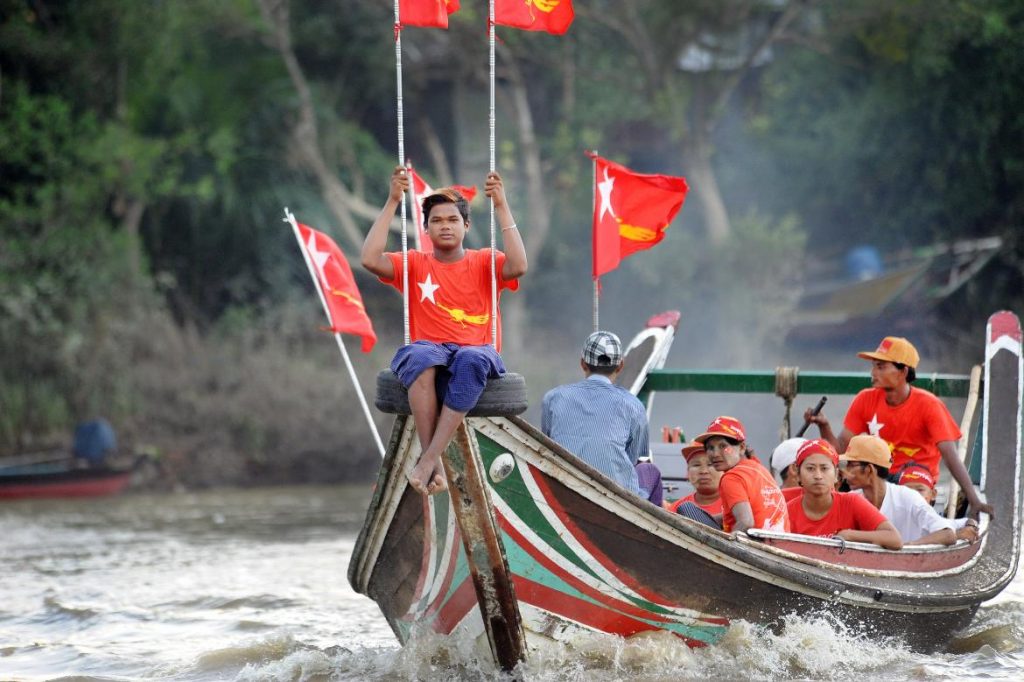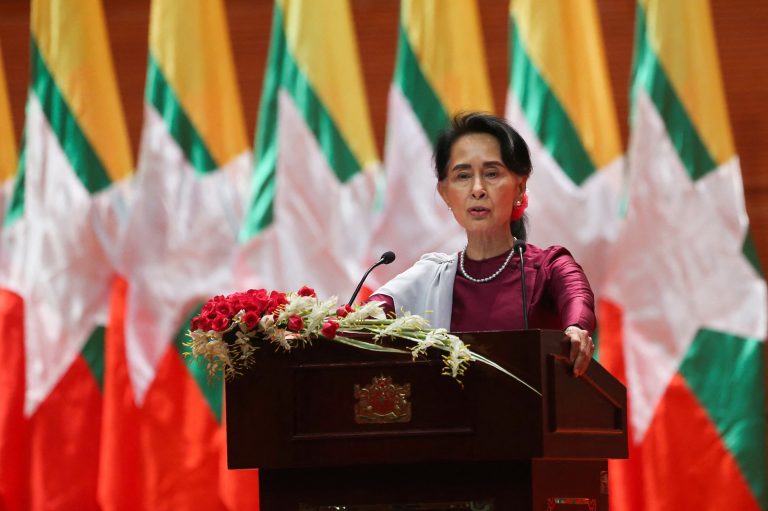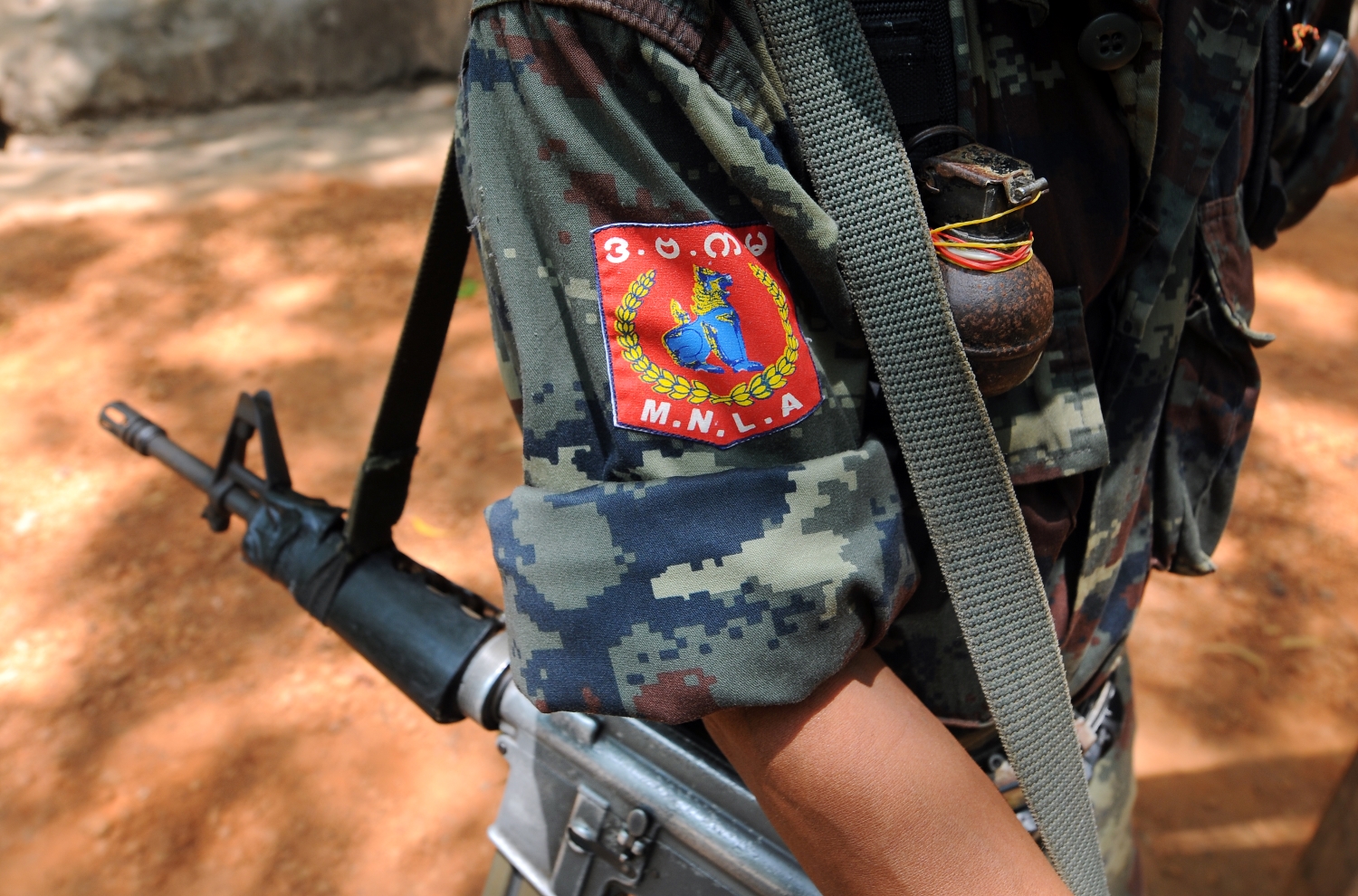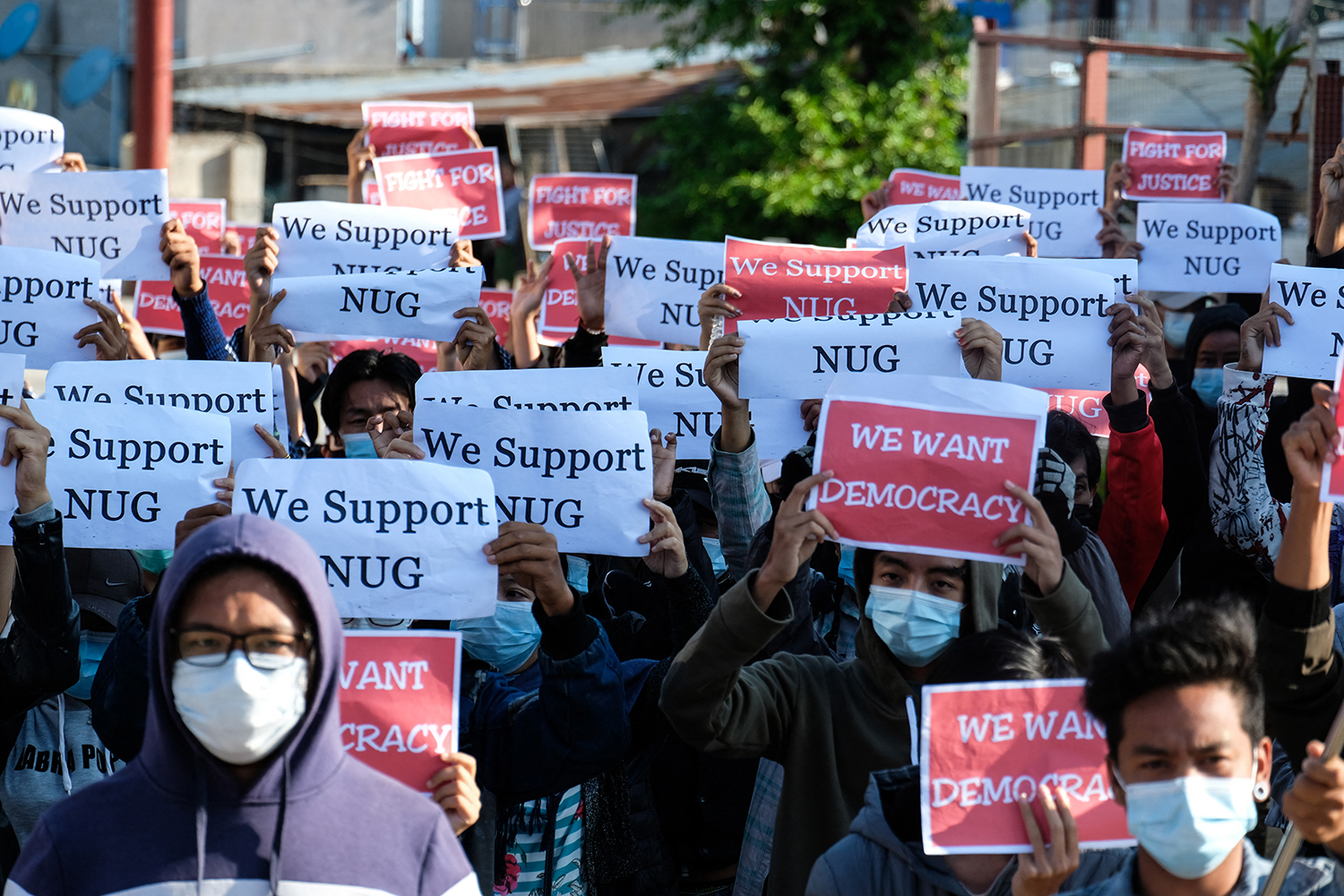More than halfway through its term in office, the NLD has disappointed on peace and the economy but deserves praise for cracking down on corruption.
By SITHU AUNG MYINT | FRONTIER
It is more than three years since Daw Aung San Suu Kyi led the National League for Democracy to a landslide election victory and her government is now more than halfway through its five-year term in office. How many of the NLD government’s election promises, such as peace and constitutional reform, have been realised? How much has been done to reform and boost the economy? Let’s examine the results.
Even before the NLD took office and she became state counsellor in early 2016, Aung San Suu Kyi said peace would be her highest priority. She regards the country’s economic backwardness as being in large part a result of entrenched civil war, and often refers to this when discussing economic policy.
Her administration inherited the peace process launched by the Union Solidarity and Development Party government of President U Thein Sein, which signed the National Ceasefire Accord with eight ethnic armed groups in October 2015. The NLD leader had not shown much enthusiasm for the NCA before it was signed. As state counsellor, she launched the 21st Century Panglong series of peace conferences but, after three iterations, the only tangible step forward has been the addition of two extra groups to the NCA in February. Meanwhile, some of the biggest armed ethnic groups, such as the Kachin Independence Organization and the United Wa State Party, continue to shun the NCA.
A high-level summit at Nay Pyi Taw in October attended by the government, Tatmadaw and NCA signatories failed to resolve differences over the issues of non-secession and the creation of a single national army and dashed hopes of moving the peace process forward. A speech at the summit by Tatmadaw Commander-in-Chief Senior General Min Aung Hlaing contributed to a decision by the Karen National Union to suspend formal participation in the peace process. Because the KNU is one of the biggest ethnic armed groups to have signed the NCA, this development has caused uncertainty among other armed ethnic groups and will delay the next 21st Century Panglong conference. Aung San Suu Kyi’s hope of cementing agreement on a number of key issues by 2020 has become more distant.
Support more independent journalism like this. Sign up to be a Frontier member.
Meanwhile, efforts to reform the Tatmadaw-drafted 2008 Constitution outside of the peace process have fared little better. Constitutional reform was an NLD promise during the 2015 election and an issue on which it campaigned under the USDP government. Some are wondering when the NLD government will begin to act on this promise.
There are unconfirmed reports of secret talks between the NLD and the Tatmadaw on amending the constitution. It would be interesting to know who was involved in the talks, if they happened, and what changes were sought by the NLD as a priority and how the Tatmadaw responded. According to NLD spokesperson Dr Myo Nyunt, Min Aung Hlaing has said that the people would have peace by 2020 and the end of civil conflict will pave the way for changing the constitution. This is all constitutional reform advocates have to go on.
The NLD government has also attracted criticism over its slow progress on economic reform. There has been some legislative progress, including a new investment law aimed at making the country more attractive for foreign investors. However, the Rakhine crisis has contributed to a downturn in investment – and tourists – from Western countries. The NLD government’s record on job creation is also disappointing and is one reason why millions of citizens continue to leave the country in search of work. For those who stay, in most cases, life continues to be a struggle. Despite China’s grand infrastructure plans for Myanmar as part of its Belt and Road Initiative, it is doubtful how much our country will benefit from them, and there are fears that the Chinese will take the lion’s share.
There were high hopes for better times when the NLD took over the civilian government. There was speculation that investment from Western countries would make a big contribution to economic development and help to create millions of jobs. This dream has not come true. The NLD government has not achieved appreciable economic development.
However, the NLD government can be credited with some improvements. The people are celebrating a greater sense of freedom and enjoy being able to speak out boldly on issues of concern. Moreover, the government has launched a concerted attempt to fight the corruption that has corroded the nation from top to bottom. Pervasive corruption has contributed to Myanmar’s status as one of the world’s least developed countries; determined moves to eradicate it are an important sign of progress.
The NLD government has also made welcome progress in healthcare and education. A new system of education is being developed to better suit the needs of a new generation.
There have been other successes and failures. They cannot all be discussed here, but one thing is certain: the people do not want to return to the dark age of military dictatorship when most lived in fear and endured conflict, sanctions and poverty.







